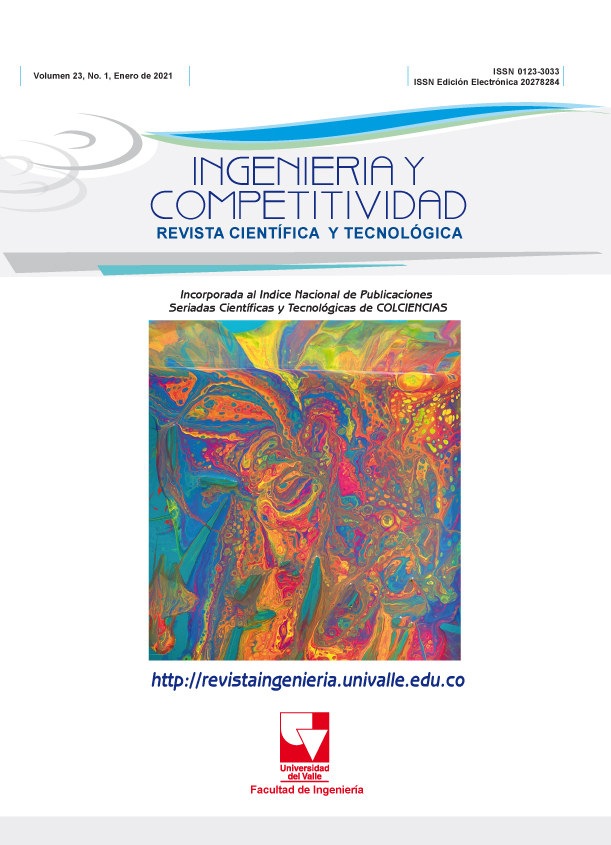Empleo de la Estrategia del Océano Azul para obtener puertos 4.0
Palabras clave:
Estrategia Océano azul, Digitalización, Puertos 4.0Contenido principal del artículo
La cuarta revolución industrial se caracteriza por una alta digitalización de los sistemas y los procesos. Esta revolución ha llegado a los puertos españoles. Estos llevan años invirtiendo en la implantación de nuevas tecnologías dirigidas a impulsar la sostenibilidad y la calidad medioambiental, así como a buscar una logística más eficiente y ordenada. Los puertos avanzan imparablemente hacia su transformación digital, que se materializa en los conocidos Puertos 4.0. Estos puertos inteligentes o Smart Ports, abarcan multitud de aspectos y variables. Automatización, digitalización, tecnologías que permiten la interoperabilidad, transparencia, descentralización y experiencia del cliente definen el contexto de aplicación del concepto ‘Puertos 4.0’ al sector logístico-portuario español. Cómo alcanzar un proceso de digitalización satisfactorio que permita avanzar hacia puerto 4.0 en el sistema portuario español es una de las cuestiones que se están planteando en los últimos tiempos. El mundo portuario español podría representarse por un océano rojo, pues de forma muy generalista, se puede decir que está marcado por una feroz competencia carente de diferenciación. Por ello, con la propuesta lo que se pretende es llevar al sistema portuario español a un océano azul, donde una estrategia e innovación adecuada generan saltos de valor que hacen que los competidores sean irrelevantes porque los clientes comparan productos y servicios absolutamente diferentes. Para poder dar respuesta a ello se planta la Estrategia del Océano Azul, dejando de lado la competencia entre puertos y generando una nueva demanda. Del estudio desarrollado se concluye que los puertos españoles aún tienen un largo camino que recorrer en materia de sostenibilidad. Asimismo, se concluye que un nuevo modelo de gestión supondría la innovación en valor que necesaria en el proceso hacía puertos 4.0.
(1) Panayides PM. Global supply chain integration and competitiveness of port terminals. In: Wang J, Olivier D, Notteboom T, Slack B, editors. Ports, Cities, and Global Supply Chains. 1st ed. Aldershot: Ashgate Publishing Company; 2007. p. 43–56.
(2) Zereik E, Bibuli M, Miskovic N. Challenges and future trends in marine robotics. Annu Rev Control. 2018;46:350–68. https://doi.org/10.1016/j.arcontrol.2018.10.002.
(3) Heilig L, Lalla-Ruiz E, Voß S. Digital transformation in maritime ports: analysis and a game-theoretic framework. NETNOMICS Econ Res Electron Netw. 2017;18:227–254. https://doi.org/10.1007/s11066-017-9122-x.
(4) Heilig L, Voß S, Schwarze S. An analysis of digital transformation in the history and future of modern ports. In: Proceedings of the 50th Hawaii international conference on system sciences (HICSS). Piscataway: IEEE Institute of Electrical and Electronics Engineers; 2017. p. 1341–1350.
(5) Acciaro M, Renken K, Khadiri N El. Technological Change and Logistics Development in European Ports. In: European Port Cities in Transition. Springer, Cham; 2020. p. 73–88.
(6) González-Cancelas N, Serrano BM, Soler-Flores F. Seaport Sustainable: Use of Artificial Intelligence to Evaluate Liquid Natural Gas Utilization in Short Sea Shipping. Transp J. 2019;58(3):197–221.https://doi.org/10.5325/transportationj.58.3.0197.
(7) Martín AES, González-Cancelas N, Serrano BM, Soler-Flores F. Towards the sustainability of the Spanish Port System through the Business Observation Tool. Proc Inst Civ Eng - Marit Eng. 2020. https://doi.org/10.1680/jmaen.2020.25. [epub ahead of print].
(8) Castelein B, Geerlings H, Duin R Van. The reefer container market and academic research: A review study. J Clean Prod. 2020;256:120654.https://doi.org/10.1016/j.jclepro.2020.120654.
(9) González-Cancelas N, Serrano BM, Infantes ME, Soler-Flores F, Camarero-Orive A. Escenario de digitalización para el sistema portuario español. Rev Transp y Territ. 2020;(22). https://doi.org/10.34096/rtt.i22.6377.
(10) Dooms M, Lugt L Van Der, Parola F, Satta G, Song D-W. The internationalization of port managing bodies in concept and practice. Marit Policy Manag. 2019;46(5):585–612. https://doi.org/10.1080/03088839.2019.1584340.
(11) Serrano BM, González-Cancelas N, Soler-Flores F. Modelo de inteligencia artificial para el análisis de la gestión de la sostenibilidad en puertos marítimos. DYNA Ing e Ind. 2018;93(1):67–74. https://doi.org/10.6036/8508.
(12) Garcia-Alonso L, Monios J, Vallejo-Pinto JÁ. Port competition through hinterland accessibility: the case of Spain. Marit Econ Logist. 2019;21:258–277.https://doi.org/10.1057/s41278-017-0085-5.
(13) Serrano BM, González-Cancelas N, Soler-Flores F. Sustainable short sea shipping: social component analysis through decision networks. Proc Inst Civ Eng - Marit Eng. 2018;171(4):135–44. https://doi.org/10.1680/jmaen.2017.19.
(14) González AR, González-Cancelas N, Serrano BM, Orive AC. Preparation of a Smart Port Indicator and Calculation of a Ranking for the Spanish Port System. Logistics. 2020;4(2):9. https://doi.org/10.3390/logistics4020009.
(15) Zhang X, Roe M. Port Competition. In: Maritime Container Port Security. 2019.
(16) Tavasszy L, Behdani B, Konings R. Intermodality and Synchromodality. In: Geerlings H, Kuipers B, Zuidwijk R, editors. Ports and Networks Strategies, Operations and Perspectives. 2017. p. 251–66.
(17) Douaioui K, Fri M, Mabrouki C, Semma EA. Smart port: Design and perspectives. In: 2018 4th International Conference on Logistics Operations Management (GOL). Le Havre, France: IEEE; 2018. p. 1–6.
(18) Mauborgne RA, Kim WC. La estrategia del océano azul. Harvard Deusto Bus Rev. 2005;(131):22–31.
Downloads

Esta obra está bajo una licencia internacional Creative Commons Atribución-NoComercial-CompartirIgual 4.0.
Los autores que publican en esta revista están de acuerdo con los siguientes términos:
Los autores ceden los derechos patrimoniales a la revista y a la Universidad del Valle sobre los manuscritos aceptados, pero podrán hacer los reusos que consideren pertinentes por motivos profesionales, educativos, académicos o científicos, de acuerdo con los términos de la licencia que otorga la revista a todos sus artículos.
Los artículos serán publicados bajo la licencia Creative Commons 4.0 BY-NC-SA (de atribución, no comercial, sin obras derivadas).

